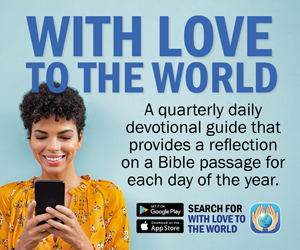When Jesus was born in the village of Bethlehem in Judea, Herod was king. During this time some wise men from the east came to Jerusalem and said, “Where is the Child born to be king of the Jews? We saw his star in the east and have come to worship him”. When King Herod heard about this, he was worried and so was everyone else in Jerusalem. Herod brought together the chief priests and the teachers of the Law of Moses and asked them, “Where will the Messiah be born?” They told him, “He will be born in Bethlehem, just as the prophet wrote, ‘Bethlehem in the land of Judea, You are very important among the towns of Judea. From your town will come a leader, who will be like a shepherd for my people Israel”.
Matthew 2: 1-6
Reflect on the word POWER for a few moments.
Power is both a personal and a political experience. It can be both positive and negative. It is the manner in which we chose to use power that makes it abusive or life-giving.
Abusive power is justified in many ways:
- An abuser will use violence to prove control.
- A co-worker will withhold information to protect personal power.
- A Board of Management or CEO will structure regulations to maintain authority as power.
Abusive use of power creates isolation. God’s use of power creates community.
A few people saw a star, heard God’s message and chose to respond with the power of wisdom. A powerful King heard God’s message, was threatened and chose to respond with the power of protectionism.
How do we choose to respond to the power God gives to each of us?
God of Wisdom and Power, give me the assurance I need to use your power for the good of others. Empower me with your power that I may empower others
© Ranjini Wickramaratne-Rebera
For a number of years, our dear friend Ranjini Rebera wrote Biblical reflections for the use of Gungahlin Uniting Church and others, usually for Advent and Lent. We were privileged to receive these, as Ranjini had a working history of writing and teaching on a global stage. Each time she completed the considerable work on one of these studies for us she would announce firmly, ‘That’s it. That is the last one I’m writing. No more. End of story!’ But as Advent or Lent came around again she would start hinting that she’d had an idea for a reflection – and she would write another one.
When she completed a Reflection for Lent 2021, we were not to know that this really was the last one. Ranjini died on 13 October 2021. We miss her intellect, her leadership, her vivid personality, her artistic gifts, her deep faith and her pastoral heart. We have lost some colour from our world.
The Gungahlin Uniting Church Worship Team, where Ranjini served for several years, offers Ranjini’s study material, first produced in 2015, as we give thanks for her life shared among us.


